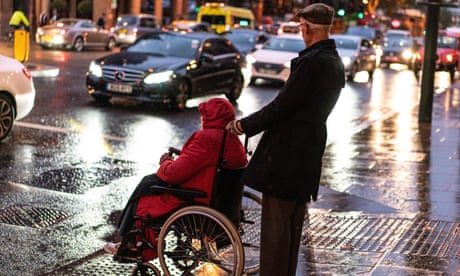Work and pensions committee chair tells ministers to fix carer’s allowance issues

Stephen Timms says DWP letting unpaid carers incur ‘enormous accidental overpayments’
Ministers have been told to “immediately” fix the issues causing tens of thousands of unpaid carers to incur “enormous accidental overpayments” amid growing anger over the carer’s allowance scandal.

Stephen Timms, the chair of an influential parliamentary committee, said he was “very troubled” that scores of carers were being forced into financial distress as a result of the government’s mistakes.
He said the Department for Work and Pensions (DWP) should be “helping them not harassing them” and added: “It does sound to me as though things are going quite badly wrong at the moment.”
Timms, the chair of the Commons work and pensions committee and the Labour MP for East Ham, told BBC Radio 4’s Money Box programme that the DWP seemed to “completely ignore” the notifications it received when an unpaid carer earned more than the £151-a-week limit.
Instead, he said, the department was allowing people to incur “enormous accidental overpayments”, often over several years. In dozens of cases these bills have totalled more than £20,000.
The Guardian revealed this week that 156,000 unpaid carers are now repaying severe penalties – pushing many into debt or financial distress – for often unwittingly overstepping the small earnings limit while caring for a loved one. Roughly one in five unpaid carers in part-time work breached the earnings limit last year.
…



